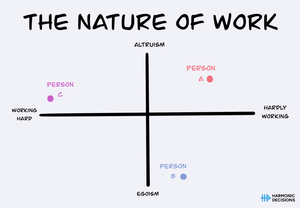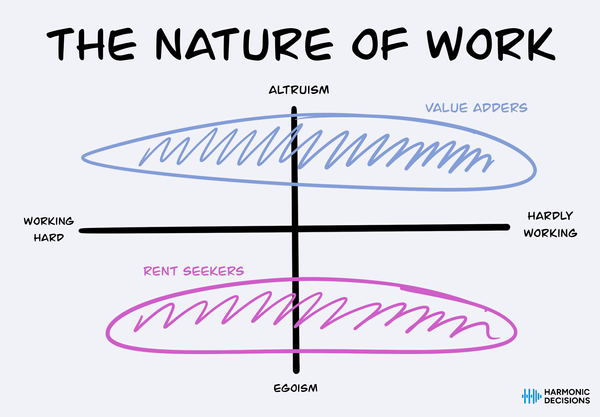For the past few months, I've sporadically been losing my voice. This is something I probably should see a doctor about, but I keep getting caught in this cycle of slowly recovering with my home remedies only to lose it by repeating the behaviors that lost my voice in the first place. It's made my life quite aggravating at times - not being able to communicate as quickly or advocate for myself in meetings, not being able to complain about England blowing the Euro final, and being forced to listen politely as others pepper me with unsolicited advice on how I should treat it.
However, it's taught me a lot about what it means to "find my voice."
In the past few weeks, I've touched on this idea of "finding your voice" and how critical it is to make good decisions multiple times. I've written about paying attention to our thoughts and our inability to properly digest our experiences and reflect upon them. Analyzing my own thoughts, I put them into three broad categories: reading, recalling, and reflecting. But this is only half of the process of finding your own voice.
Finding your own voice requires two things to be present. Firstly, we need to have our thoughts. Secondly, we need to express these thoughts properly in a way that is authentic to ourselves. The addendum "authentic to ourselves" needs to be emphasized more heavily in today's society due to the influence of generative AI tools like ChatGPT - but more about that later.
Having our own thoughts requires reflection. It's not just the consumption and recollection of information but also its synthesis to make new and novel viewpoints - this is what the last two posts have been about. Expressing our thoughts requires repetition, which is what this post will focus on: How do we practice expressing our thoughts in a way that is authentic to us?
The first strategy I'd like to share is to "Vent the voices." The goal is to write down everything you're thinking until you can't write anymore. It's very similar to how you'd speak to a friend or maybe vent to your therapist. I like to turn all my devices off and let all the different thoughts appear on paper.
The difference here is writing it down. Crucially, I make sure to write each thought on a different line. This allows you to go back and repeat the process immediately, only this time you're writing down your reaction to each thought you wrote down before.
Thinking about thinking is the goal, and being able to replay your venting and analyze "Where is this thought coming from?" allows for better articulation of the thought itself - and maybe even a letting go from the thought itself, if it's not something you want to identify with anymore.
Journaling isn't new, but going back (relatively quickly) and being able to iterate on the exact thoughts you just had allows you to reevaluate and express them in a way that's perhaps less emotionally charged or influenced by others.
There are variations of this that I've done - video recordings and voice notes - but it's fundamentally the same thing. Going back immediately (or preferably after some deep breathing or meditation) allows for a better expression of ideas in ways that wouldn't have hit you on the first try.
The second strategy is to "Build in public." This phrase isn't mine and comes from the start-up world, where it refers to sharing as much information about the company's story, trajectory, and current challenges and opportunities publicly as possible so that it builds trust and loyalty from the company's customers.
How this relates to expressing ourselves is its invocation of Cunningham's Law: "The best way to get the right answer on the internet is not to ask a question; it's to post the wrong answer." This is the real benefit of building in public: opening yourself up to the criticism of others. Often, we may miss certain things in our thought processes that others might catch. Of course, this assumes that those giving us feedback are well-intentioned, which often isn't the case.
Building in public is scary! It requires a certain amount of fearlessness, trust, and intellectual humility. But sharing your thoughts with the right people is some of the best training for expressing them better.
Like I mentioned earlier, the important caveat here is to be authentic. Authentic voices gather audiences! It's especially relevant to the "build in public" strategy, as that's my goal with this newsletter: I want to share my thoughts on decision-making in a public-facing newsletter. It does seem a bit risky - starting a blog in an age when people can't tell the difference between human writing and ChatGPT seems unwise - not to mention the fears of doing anything in public.
However, if everyone has access to the same technology that allows for "easy writing", then no one does. It's like the opening scene from Mad Men - everyone's on an even footing, so what matters most is the ability to differentiate yourself. In the case of Don Draper, it's toasted; for us, it's our authentic, personal voice.
Having our own thoughts and expressing them is a crucial part of good decision-making because they are the foundation on either side of a decision. Every decision bridges what's happening inside us and what happens outside us - having our own thoughts develops the foundation for a deeper internal world, and expressing them authentically develops the foundation for a more vibrant external world.
As always, I would love to hear your thoughts. Registered readers can access the Discord community and comment on articles posted on the site. Everyone is always welcome to get in touch.










Member discussion